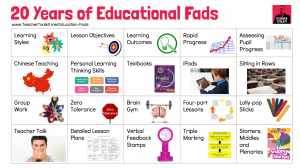There are things happening in education that could be viewed by some as trend or fad but they are not. The eruption of classical schools and the championing of classical education is certainly gaining ground but it is not a fad. Such a classical education is, in reality, the opposite of the trend or fad. It does not tie what happens in the classroom to educational theory or poll or cultural expectation. It follows a pedagogical model that has ancient roots -- one, for example, that Luther would recognize if he saw it today. Social constructs so much in the news are omitted in favor of language, rhetoric, reason. These are taught not through the lens of personal experience but by immersing students in the great works of literature, philosophy, history, and science.
These means and methods have been drawn from Greek and Roman academic traditions honed and nurtured throughout the ages but, it would seem, dismissed by what education has become today. It spends less time on the nitty gritty of reality than it does on virtue, truth, beauty, and eloquence. It instructs by teaching them to know and then to think critically and finally how to articulate their thoughts in speech and writing. A long time ago I read that the heart of education is the education of the soul. As such, classical education is not simply interested in imparting information or eliciting feelings about that information -- it's goal is more than forming good students but forming students who are good. Surely the absence of moral good in our culture is cause enough for us to consider this for more, dare I say, all our students but it turns out that students who are either bored or unengaged in the classrooms of public education are challenged and excel in classical educational settings.
I have seen the commercials on TV even in my own red state that insist that our current schools are the best they have ever been and we ought to leave education to the experts but the success of homeschoolers using this format is undeniable. The rise of hundreds of classical schools across America is not simply a fad -- it is the yearning for something that works and the rejection of the new and different (given their track record of failing both students and society). Do we have to wait for the next best thing in education to fail our students before we realize that the answer does not lie in all things new? For Lutherans considering starting a parish school, it is a fool's errand to try to mimic the public school with a shot of Jesus thrown in. How much better to form a classical school in which worship and catechesis are integral to their life of learning in the classroom?

No comments:
Post a Comment